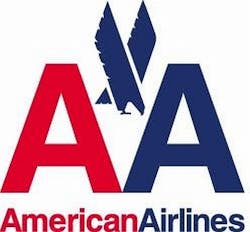Allied Pilots Association disputes allegations that pilots disrupt flight schedules with insignificant maintenance requests
FORT WORTH, Texas, 3 Oct. 2012. The Allied Pilots Association (APA), the certified collective bargaining agent for 10,000 American Airlinespilots, has issued a response to allegations that pilots disrupt flight schedules with insignificant maintenance requests.
“Federal aviation regulations and American Airlines’ policies and procedures require that all known mechanical discrepancies be entered into the aircraft’s maintenance logbook for corrective action,” says APA President Keith Wilson. “Failure to place a mechanical discrepancy in the maintenance logbook can result in a revocation of a pilot’s license by the Federal Aviation Administration, not to mention the fact that it could result in a serious safety risk.
“American currently operates the oldest fleet of aircraft in the industry, requiring much more frequent maintenance than other carriers that operate newer fleets,” Wilson adds.
American Airlines pilots continue to encounter a large number of serious maintenance-related issues that must be documented, as required by law. Below is a small sampling of issues that were documented pre-flight in the past several days:
- Pilot oxygen mask broken
- Main landing gear hydraulic leak
- Aircraft avionics overheat warning
- Fuel tank seepage on the ramp
- Premature fuel burn indications
A lack of proper preventative maintenance on the ground can lead to in-flight incidents, such as the following items reported by pilots:
- A B-737 had a wheel well fire indication in flight and was forced to declare an emergency and returned to the departure airport.
- A B-737 declared an emergency and was diverted to Amarillo due to a smoke and electrical smell in the cockpit while en route from Dallas/Ft. Worth to Denver.
- There were bearing failures in the main landing gear on a B-767 requiring replacement of two wheels.
- A B-767 experienced multiple landing gear indication malfunctions after takeoff and was forced to declare an emergency and land overweight at the departure airport.
There was a premature fuel burn from the left main wing tank causing a serious weight and balance issue.
Due to recent FAA fines and American’s ongoing financial struggles, the FAA has stepped up its scrutiny of the carrier’s maintenance procedures, according to an APA spokesperson. A message from the FAA Certificate Management Office that monitors American Airlines included the following statement directed to pilots: “If you feel you have been coerced to refrain from reporting maintenance discrepancies, we advise you to report any instance of such to the AMR CMO for investigation. We also encourage you to use the Aviation Safety Action Program to report such instances.”
“Our pilots should never be pressured or bullied into not reporting any maintenance issues that could endanger the traveling public,” Wilson says.
